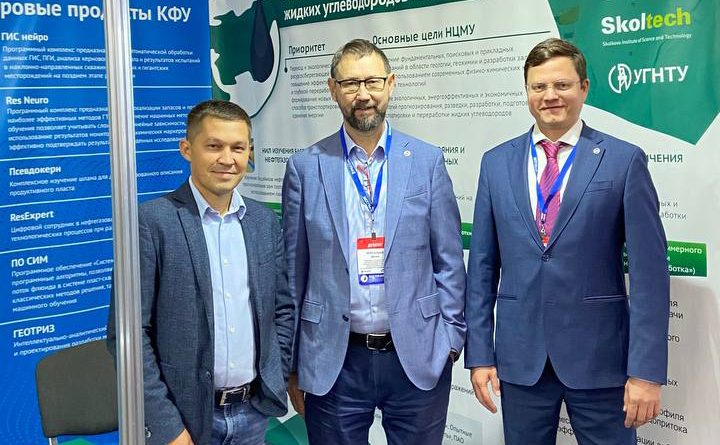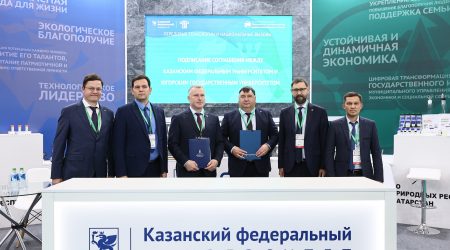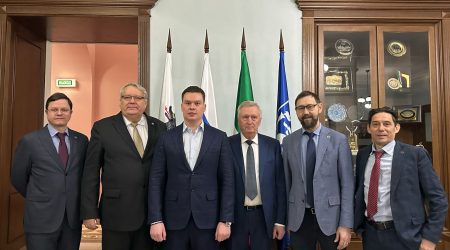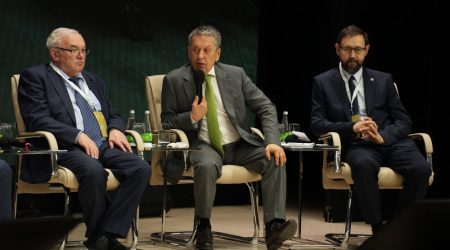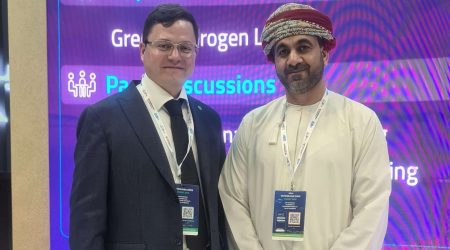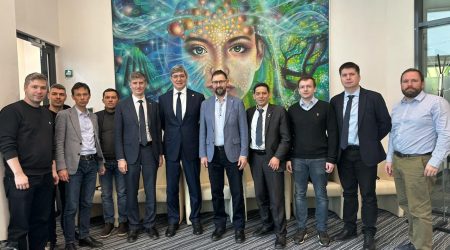Institute projects represented at RAO/CIS Offshore in Saint-Petersburg
The forum took place on 26 – 29 September.
The conference on oil and gas projects of the Russian Arctic and offshore areas is organized on odd years. It features representatives of governments, businesses, and research centers of the Commonwealth of Independent States. KFU’s sizable delegation comprised Vice-Rector for Earth Sciences Danis Nurgaliev, Deputy Director of IGPT for Innovation Vladislav Sudakov, Chair of the Department of Petroleum Engineering Mikhail Varfolomeev, lead research associates Alexander Bolotov, Roman Pavelyev, Matvey Yegorov, and Lead Engineer Ilyas Idrisov.
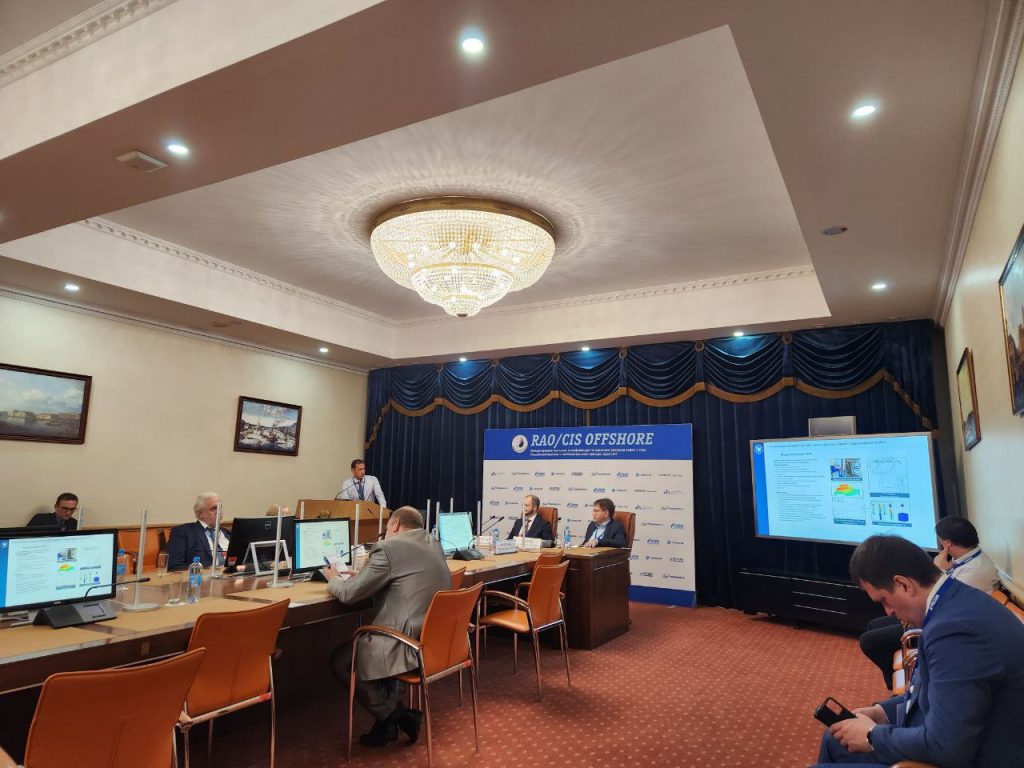
The forum incluided a plenary session and 14 breakout sessions on offshore exploration, offshore rig construction in ice areas, oil transport, offshore infrastructure, and technological safety. Over 200 contributors spoke about their research. Among other areas, KFU presented its experience in technological safety of pipelines, namely, hydrate storage of gases.
“In the course of our presentations and exhibition, the developments of Kazan University in technologies and reagents to improve the efficiency of hydrocarbon production and transportation in the Arctic region were demonstrated. These developments aroused great interest among the conference participants. It is planned to develop the presented technologies in the form of separate projects. It should be noted that the development of fields in the Arctic region is a prospect for the development of the oil and gas industry in the Russian Federation,” notes Dr Varfolomeev.
Danis Nurgaliev’s report was dedicated to prospective techologies of forecasting and exploration of offshore reservoirs with geophysical and geochemical methods and the use of unmaneed underwater vehicles.
“It is not possible to replace fossil fuels with renewable energy sources in meaningful amounts for at least the next 50 years. It is urgent to replace all other fossil fuels with natural gas (methane), which could solve many problems, including the problem of greenhouse gases. Considering that Russia has the largest reserves of natural gas, it is necessary to create express and sufficiently cheap methods of offshore reserve assessment. This is also important because climate change may make the development of giant gas deposits on the shelf more preferable than on the Arctic mainland,” comments the Vice-Rector.
An expo also included KFU’s innovations, according to Ilyas Idrisov, “Center for Liquid Hydrocarbons’ projects and developments were showcased. Each of them was shown to delegations of exhibition participants. Our offers piqued interest.”

